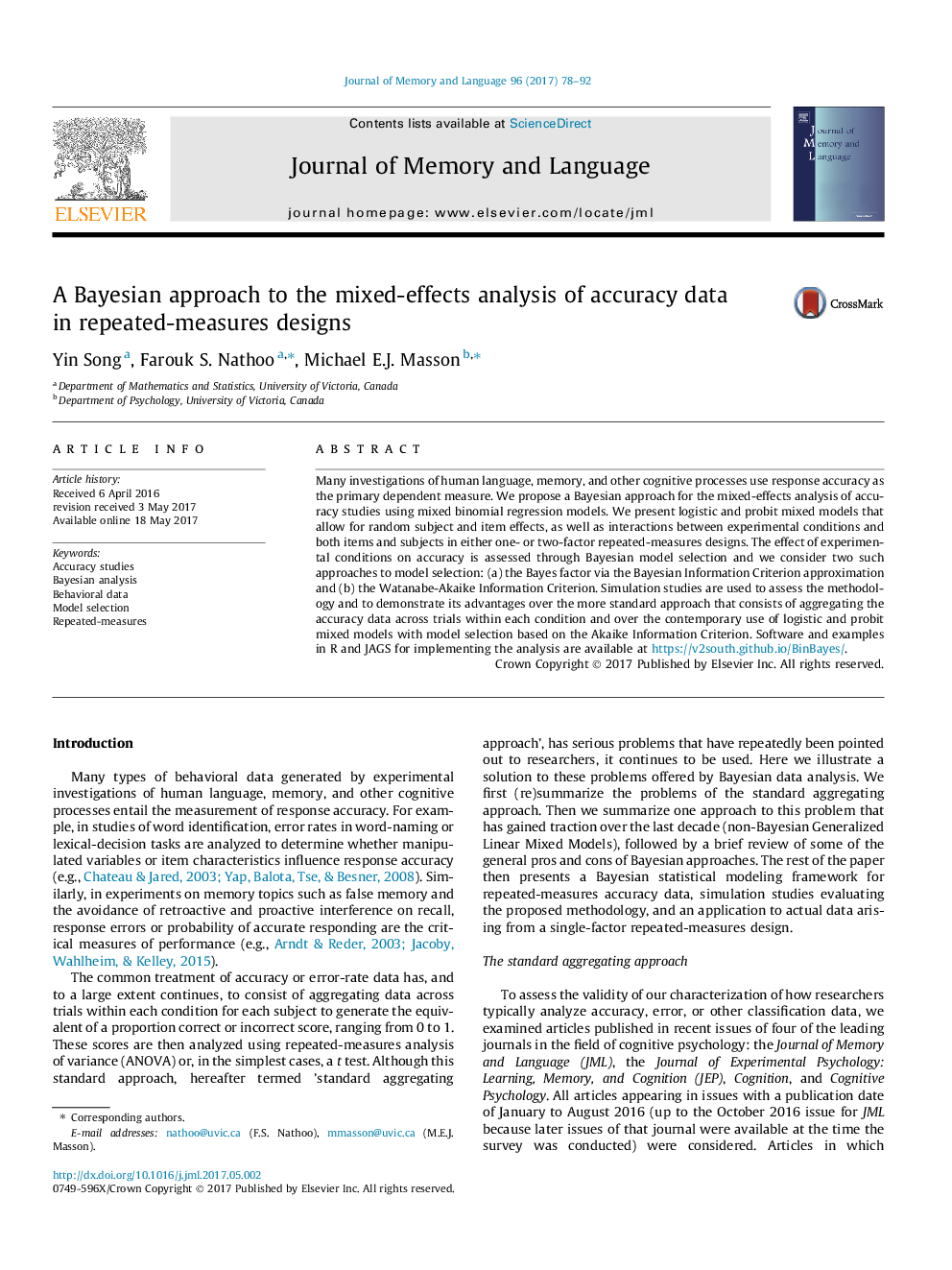| کد مقاله | کد نشریه | سال انتشار | مقاله انگلیسی | نسخه تمام متن |
|---|---|---|---|---|
| 5042560 | 1474623 | 2017 | 15 صفحه PDF | دانلود رایگان |
- Many recently reported analyses of accuracy data aggregate data across trials.
- We provide a tool for applying mixed effect models to binomial data.
- These models assess effects that may vary across items or subjects.
- We compare Bayesian evaluations of such models to other approaches.
- Bayesian methods were found to have greater power to detect effects.
Many investigations of human language, memory, and other cognitive processes use response accuracy as the primary dependent measure. We propose a Bayesian approach for the mixed-effects analysis of accuracy studies using mixed binomial regression models. We present logistic and probit mixed models that allow for random subject and item effects, as well as interactions between experimental conditions and both items and subjects in either one- or two-factor repeated-measures designs. The effect of experimental conditions on accuracy is assessed through Bayesian model selection and we consider two such approaches to model selection: (a) the Bayes factor via the Bayesian Information Criterion approximation and (b) the Watanabe-Akaike Information Criterion. Simulation studies are used to assess the methodology and to demonstrate its advantages over the more standard approach that consists of aggregating the accuracy data across trials within each condition and over the contemporary use of logistic and probit mixed models with model selection based on the Akaike Information Criterion. Software and examples in R and JAGS for implementing the analysis are available at https://v2south.github.io/BinBayes/.
Journal: Journal of Memory and Language - Volume 96, October 2017, Pages 78-92
